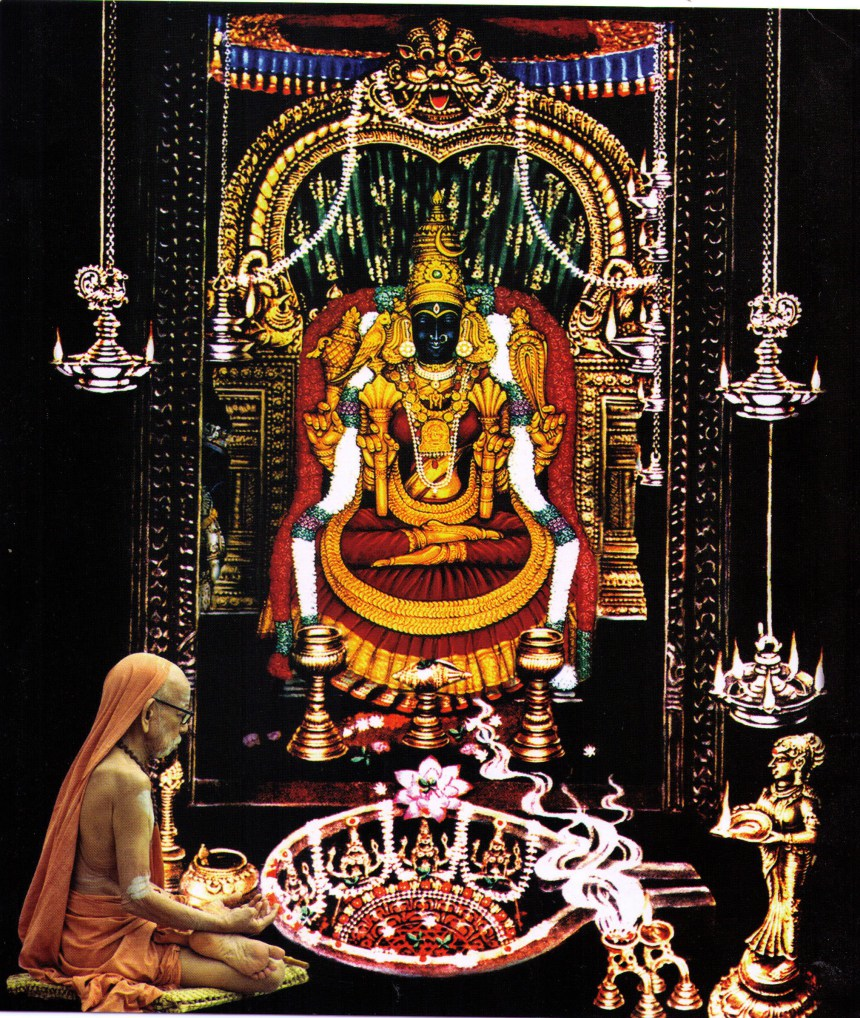The purpose of human birth is to live a life full of love for all. No joy is greater than that of loving others. Amassing wealth, acquiring property, earning fame, bedecking oneself give but transient pleasure, not any sense of fullness. The happiness that permeates our inner being is the happiness of loving others. When we love others we are not conscious of our suffering, the physical exertion we make and the money we spend: indeed the joy of loving gives us a transcendent feeling. A life in which there is no love for others is a life lived in vain.
I said that when we love a person we forget our sorrows. But one day, at last, it may be that the object of our love itself becomes the cause of great sorrow. One day the person we love leaves us forever-or one day we will leave him forever. "O he has left me forever"-"O I am leaving him for ever": we lament in this manner. We feel disturbed when we realise that all the happiness that love gave us has at last proved to be a lie and ended in sorrow. "Is the final outcome of love then sorrow? "we ask ourselves in agitation. The greater our love for a person the more intense our grief when he or she is separated from us forever. We may then even wonder whether a life without love, a life of selfishness or a life of insensibility would be better. One leading such a life will not be affected by being separated from the object of his affection.
A selfish or self-centred man, however, gathers only sin. Is it not a life lived without joy- a life lived without a sense of fullness- a life lived in vain, a life like that of a log of wood or stone?
[The problem then is]: Our love for others ends in sorrow. However, if there is no love there is no meaning in life. What is the solution to this problem? We must create such love as will never change, love that will be enduring. The object of our love must never become separated from us, never desert us. If there were such an object and if we devoted all our love to it we would never be separated from one another- there would be eternal bliss, everlasting fullness.
To explain, we must love the One Object that never changes. What is that Object? The Paramatman. The Paramatman will never be separated from us. Even if our life departs it will dissolve in the Paramatman and become one with him. Only that love is everlasting which is dedicated to him.
The question arises: If one is to love the Paramatman that never perishes, does it mean that we must not love anyone else, that we must not love others because they will perish one day? If our love for the Supreme Being keeps growing the truth will dawn on us that there is no one or nothing other than He. All those whom we loved, all those who caused us sorrow by being separated from us, they too will seem to us the imperishable Supreme Being. We must learn to look upon the entire universe as the Paramatman and love it as such. Our love then shall never be a cause of sorrow.
Even if it be that our love is not such as to embrace the universe with all its creatures as an expression of the Paramatman, we can learn to love with ease all those great men of Atmic qualities as the Paramatman, so also our sadguru who is full of wisdom and grace. Sufficient it would be to love them and surrender to them. Through them the Paramatman will give us his blessings. When someone we love dies we should not grieve for him. We must console ourselves that only the body which was the disguise of the Paramatman has perished, that the one who was in that disguise has become united with the Paramatman. Our love then will be everlasting. We must first learn to have such love for Isvara and for people of goodness, for men of God. Then step by step, we must enlarge it to embrace all creation. In this way the purpose of our life will be fulfilled.

